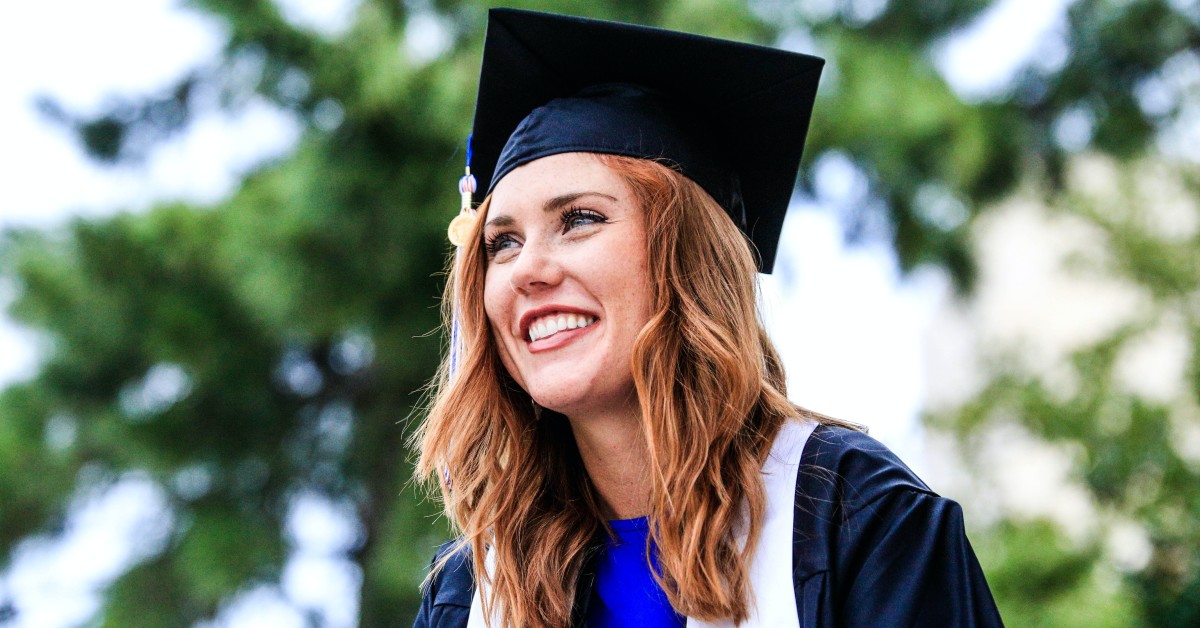
The Ultimate Guide to Master's in Special Education Programs
Special education teachers take on challenges that general ed teachers [...]
Historically, it has been difficult for students with intellectual disabilities to find a path to college. Fortunately, that path became more accessible with the 2008 reauthorization of the Higher Education Opportunity Act (HEOA). The legislation made it possible for students with intellectual and developmental disabilities to receive specific federal aid and grants and for universities to pilot inclusive programs.
Currently, over 270 colleges and universities open their doors to students with intellectual and developmental disabilities. Two- and four-year programs are available at a wide range of private and public universities and culminate in a certificate of completion.
Think College, a federally funded organization out of the University of Massachusetts – Boston, is dedicated to developing, expanding, and improving Transition and Postsecondary Education Programs for Students with Intellectual Disabilities (TPSIDs).
For students with intellectual and developmental disabilities, the most significant advantage of completing an inclusive postsecondary program is employment. According to Think College’s 2017–2018 report of the TPSID model, 65 percent of students had a paid job at or within 90 days of graduation—a statistic in contrast with the 17 percent employment rate for adults with disabilities in the general population.
Another benefit is one typically cited for any college student: the opportunity to form lasting friendships. Of students who attended TPSIDs, a reported 91 percent were satisfied with their social life. Almost all programs encourage students with disabilities to take classes with their non-disabled peers and to live and work on campus.
Even though many students within TPSIDs still receive support in some way, their level of independence increases exponentially. Just like the typical college experience, living away from family often causes students to grow in manners that would not be possible had they remained at home.
Inclusive postsecondary programs also keep students engaged. Think College reported a 77 percent retention rate during the 2017-2018 academic year, comparable to the retention rates of typical undergraduate students seeking degrees at public and private nonprofit institutions across the United States.
| University and Program Name | Learn More |
|
Merrimack College:
Master of Education in Teacher Education
|
How can students with disabilities learn more about their options with inclusive postsecondary education? Think College’s College Search Directory is an excellent resource for researching inclusive programs offered by accredited colleges and universities. Students can search by location, as well as specific features such as availability to serve high school students and out-of-district students, and opportunities for financial aid and/or housing.
It’s important to note that almost all of these programs have restrictions on whether they allow students with partial or limited guardianship to enroll.
Born out of the Taishoff Center for Inclusive Higher Education, InclusiveU provides students with intellectual and developmental disabilities the opportunity to experience life at Syracuse University in a fully inclusive setting.
InclusiveU students complete individualized coursework, work with mentors and Peer2Peer support, and attend weekly seminars on topics like health and wellbeing, budgeting, dating and relationships, and conflict resolution. They also have the option to pursue semester-long internships to explore their career options and gain marketable job skills, as well as on-campus jobs and a slew of social and extracurricular activities.
Launched in December 2010, Next Steps at Vanderbilt University is a four-year program that provides students with intellectual disabilities with postsecondary education to develop academically, socially, and professionally.
All new Next Steps students participate in the Vanderbilt University Best Buddies program to foster one-to-one friendships with general education students. Peer mentors also serve as lunch or workout partners, academic tutors, and daily planners to help students dive deeper into the typical college experience. Students self-direct their programs through plans based on their unique skills and necessary academic support.
Housed within the College of Family and Consumer Sciences’ Institute on Human Development and Disability at the University of Georgia, Destination Dawgs is a five-semester certificate program for students with intellectual disabilities. Since 2017, the program has allowed students to prepare for transitioning to adulthood with on-campus housing, peer support, and career training.
Destination Dawgs offers a mix of foundational courses alongside directed studies tailored to each students’ interests and career goals. Upon completion of their program, students are awarded a UGA Certificate in College and Career Readiness.
Georgia State University offers its Inclusive Digital Expression and Literacy (IDEAL) program to students with mild intellectual disabilities between the ages of 18 and 25. IDEAL is focused on the development of media literacy, storytelling, and media production skills so that each student can find their “voice.”
Students take classes with general education students, receive support from peer-mentors, and participate in internships with local businesses and arts organizations. They create a digital “exit portfolio” throughout the two-year program to highlight their best projects, which allows them to show their skills and job readiness to employers later on.
The Mason LIFE Program at George Mason University is a four-year program for young adults with intellectual and developmental disabilities who seek the benefits of a supportive academic environment within a university setting.
Mason LIFE students attend classes 20 hours a week in traditional subjects like literature, reading, and math, as well as program-specific courses like banking, mindfulness, and human sexuality and relationships. Students are encouraged to participate in extracurricular activities such as student government or intramural sports.
Aggie ACHIEVE (Academic Courses in Higher Inclusive Education and Vocational Experiences) is a four-year inclusive program at Texas A & M University created to equip young adults with intellectual and developmental disabilities for future employment. ACHIEVE students live in on-campus residence halls and have access to all campus-related activities and events.
Each student’s program of study is designed to suit their unique goals and pace of learning. They also have opportunities for on- and off-campus internships within their field of interest.
An increasing number of states allow the use of Medicaid Home and Community Based Services waivers to support students enrolled in inclusive postsecondary education programs. For students who can’t attend college without the aid they’re accustomed to, waivers make postsecondary education possible by funding many types of support and services, as well as tuition or fees in some cases.
As more colleges and universities offer inclusive postsecondary education programs, the future looks bright for students with intellectual disabilities. Especially with the potential for trickle-down effect to cause an increase in inclusive K-12 programs.
It’s time to rethink how we view students with intellectual disabilities and how they experience college. We know that postsecondary programs allow typically developing young adults to discover their passions, gain crucial life skills, and learn about the world. Students with intellectual and developmental disabilities have just as much to gain.
(Last Updated on February 26, 2024)
Questions or feedback? Email editor@noodle.com

Special education teachers take on challenges that general ed teachers [...]

It's one thing to talk about how inclusion is beneficial, [...]

Relationships are crucial in education,no matter who you're teaching. [...]

The quick answer is not nearly enough, given that special [...]

Special education can be a highly competitive major, meaning that [...]
Categorized as: Special Education, Education & Teaching